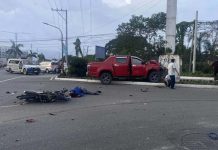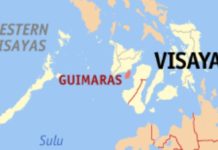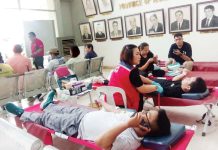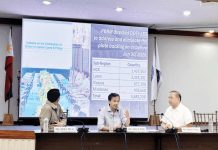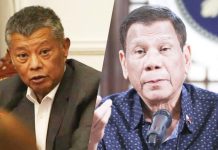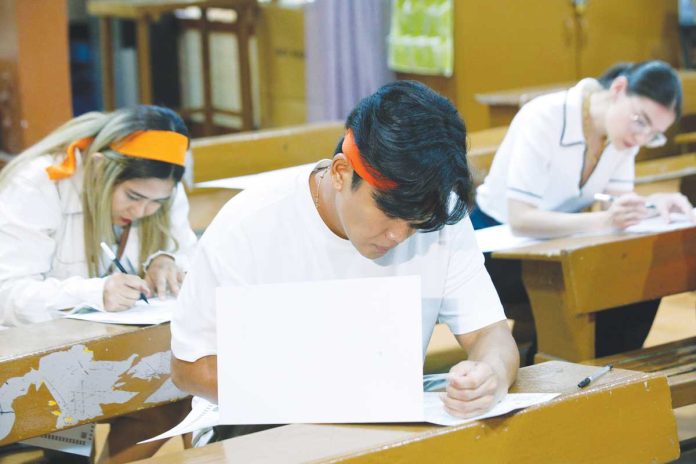
MANILA – Vote-buying “ayuda” in the just-concluded midterm elections was “endemic” and “well-entrenched”, the European Union Election Observation Mission (EU EOM) said.
According to EU EOM deputy chief observer Manuel Sanchez de Nogues, their preliminary findings took note of “credible indications” of vote-buying either via cash or goods during the campaign period.
Their group have observed the practice of vote-buying in Davao Oriental, Bohol, La Union, Palawan, Quezon, Siquijor, Zamboanga City, and Zamboanga del Sur provinces.
“Our observers in the field have received criminal reports on the practice of vote-buying… So it’s a practice that is highly entrenched,” Nogues said in a press conference.
“We have received reports, we have also, in some cases, witnesses, which is even difficult because we are highly identified as election observers, but we still have some evidence of those practices,” he added.
Marta Temido, EU EOM chief observer, also said their observers have “witnessed several credible indications and received reports of vote-buying through cash and goods, as well as partisan distribution of welfare payouts (ayuda).”
Despite the observers acknowledging the Commission on Elections’ (Comelec) attempts to combat vote-buying through various regulations and initiatives, including the establishment of a specialized task force called “Kontra Bigay”, the EU EOM reported witnessing at least five occurrences of vote-buying during the 98 campaign events they monitored.
Furthermore, the mission expressed concerns regarding the phenomenon of “bidding wars” among candidates and the widespread partisan allocation of welfare payments, commonly referred to as “ayuda.”
Meanwhile, aside from rampant vote-buying, the EU EOM also reported on “political families” dominating the local elections.
“The elections took place against the backdrop of a continued dominance of few political families in the lists of candidates, detracting from overall competitiveness,” Temido said.
Temido furthered stated that in 20 percent of district races, the candidates, mostly incumbents, ran unopposed, which limited the “genuine pluralistic competition and voter choice in those districts.”
“Voter engagement was strong nationwide but belied the fact that one in five district races were non-competitive, typically featuring only the incumbent. Some stakeholders opined that political programme of some parties were not distinguishable and often overshadowed by personality stagecraft, which could negatively impact the availability of genuine political alternatives to voters,” the preliminary findings read.
They also said that electoral violence continues to be a “recurrent feature” in Philippines elections, with it being manifested “through intimidation, harassment and violent incidents targeting candidates, their supporters and election administrators.”
“Violent incidents marred the election process in some parts of the country, including through at least 30 killings of candidates and election officials” Temido said.
Vladimir Prebilič, head of the Delegation of the European Parliament that joined the EU EOM and fully endorsed its statement, stressed that election violence was “unacceptable.”
“Violence during an election is utterly unacceptable, particularly when it results in the loss of dozens of lives. A democratic electoral process should never be associated with such tragic incidents,” he said.
According to reports from the Philippine National Police (PNP), the EU Election Observation Mission (EOM) indicated that there were approximately 111 incidents related to the elections throughout the country during the electoral period.
The preliminary findings seek to delineate initial observations and conclusions, assessing the degree to which the mission believes the elections were conducted in accordance with Philippine legislation and the international obligations to democratic elections that the nation has committed to.
A detailed final report, set to be released two months post-elections, will encompass recommendations aimed at enhancing future electoral processes./PN

